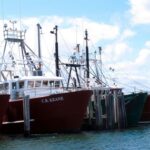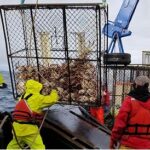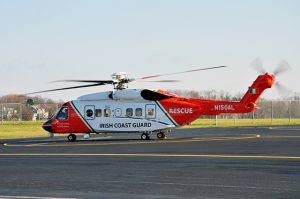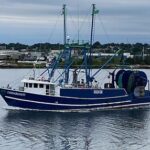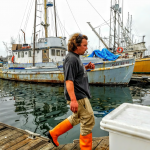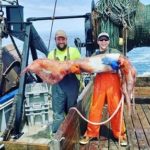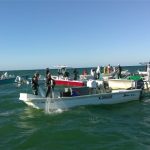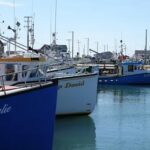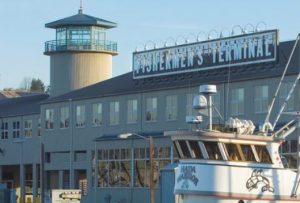Daily Archives: April 2, 2018
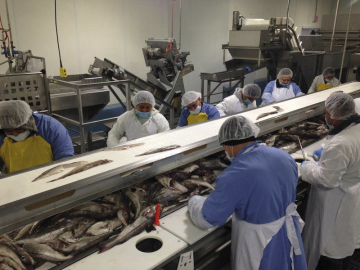
Word of Gloucester Seafood Processing reopening catches city leaders by surprise!
The comments last week by the founder of the Mazzetta Company that the seafood processor will resume processing fresh fish at its largely dormant Gloucester Seafood Processing plant caught many by surprise — including city officials. Tom Mazzetta, the chief executive officer of the Illinois-based seafood conglomerate that bears his family’s name, told a respected fishing website that the Gloucester Seafood Processing plant in the Blackburn Industrial Park will resume operations before the year is out. >click to read<23:15
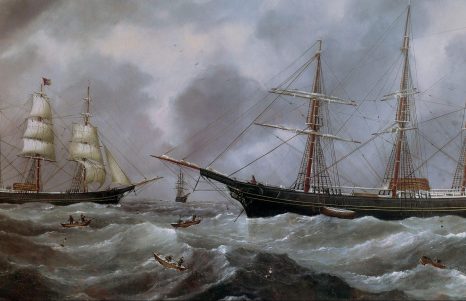
How Bomb Debris from Bristol, England, Made a Road in NYC
Here and there along the shores of the island of Newfoundland there are large amounts of flint. Since flint does not occur naturally in the area, we know that it was once ballast. This is what remains of the vast seasonal Grand Banks fisheries, so important from the early 16th to the early 20th centuries. In Eurocentric terms, Newfoundland was discovered in 1497 by John Cabot, a Venetian-born navigator sponsored by King Henry VII of England and a group of Bristol merchants. By that time, of course, there had been people living in Newfoundland,,, >click to read<13:38
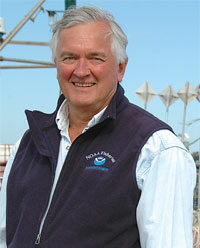
John Bullard: Lobster industry must lead on right whales
A NUMBER OF EVENTS over the past two weeks have probably gotten the full attention of the US lobster industry and increased pressure for it to take the lead in fighting the potential extinction of the North Atlantic right whale. In response to the deaths of the endangered whale, including 12 in Canada last year, Canada has imposed new restrictions on ship speeds and snow crab fishing, as well as earmarked $1 million more annually to help free marine mammals from fishing gear. >click to read<12:03

Voices of Alaska: A call to fishermen
Things are getting sideways out there in the ocean. Nearly every fishermen who’s motored in recent years along the Peninsula coast and around to Bristol Bay would probably agree. I do it every year, working my way from Kodiak to Naknek over the course of a week. And the last 10 years, with increasingly warmer water, have brought one weird phenomenon after another. Massive sea bird die offs. Whale strandings. Extraterrestial looking tropical species on the beach. The forage fish are heading for colder deeper waters at odd times.,,Now, the Pebble Mine,, >click to read<11:37
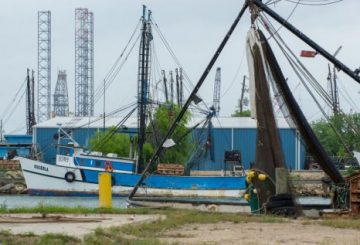
SIMP: Federal monitoring program will track foreign imports
A decision by Congress to add imported shrimp to the Seafood Import Monitoring Program is good news for an industry not used to hearing good news. The Gulf shrimp industry has struggled against a rising tide of cheap foreign imports for years, making it tough for domestic shrimp boat operators to make a living. Combined with the factors, this situation has led to a dramatic decline in the size of the Brownsville-Port Isabel shrimp fleet.,, The purpose is to thwart illegal, unreported and unregulated fishing activity. >click to read<10:38

Sustainable Shark Fisheries and Trade Act of 2018 – bill nets solutions for overfishing
A new bipartisan bill introduced in U.S. Congress this month encourages a science-based approach to significantly reduce the overfishing and unsustainable trade of sharks, rays and skates around the world and prevent shark finning. The Sustainable Shark Fisheries and Trade Act of 2018 was introduced in the U.S. House of Representatives by Rep. Daniel Webster, R-FL, and Rep. Ted Lieu, D-CA, along with co-sponsors Rep. Bill Posey, R-FL, Rep. William Lacy Clay, D-MO, and Rep. Walter Jones, R-NC., >click to read<09:39
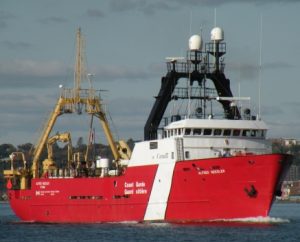
DFO trawl surveys – Fishery decisions shored up on flawed science
As unintentional metaphors go, it was strangely apt: a reader with ties to federal fisheries science wrote to me to tell me that a recent column on problems with that science, “only scratched the surface.” In some ways, that seems like a perfect description of the problem. What I’d written about was the use of a contracted private fishing trawler to do a shortened annual fisheries survey on George’s Bank. The vessel was going to do the survey in 11 days – the work normally takes five weeks, and is done by one of two federal fisheries vessels,,, >click to read< 09:17

































